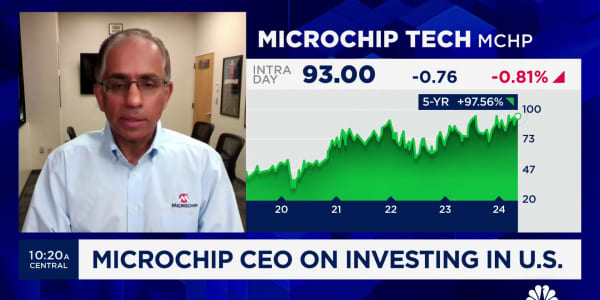As winter fades to spring so will the ability of companies to keep using the weather as an excuse for weak performance.
Blaming the snow, ice and freezing temperatures for softness in economic data and some high-profile earnings misses—such as Wednesday's FedEx disappointment—has been easy money for Wall Street.
Investors, in fact, have almost completely dismissed most negative news, whether it's out of earnings reports, economic data or tensions between Russia and its neighbors.
"It seems that the Street is very obsequiously willing to excuse anything and everything on the weather or whatever just to give an excuse to buy more stocks," economist Michael Pento of Pento Portfolio Strategies said. "It seems very silly to me."
(Read more: It's not the weather, stupid, it's the economy!)
Weakness in parts of the country, such as California, that were not snowed or iced under, as well as reduced growth in other parts of the world such as China and Japan, fly in the face of the weather excuse, Pento said.
The time for the carefree market attitude, then, likely may be nearing a close. For instance, FedEx actually initially rallied Wednesday morning off a massive earnings miss, but traders thought better of it through the day and the stock turned slightly negative in the afternoon session.
"Everybody is saying that the dog ate my homework," said Art Hogan, chief market strategist at Wunderlich Securities. "We are certainly in a market that is looking at good news as great news and bad news as 'let's blame it on the weather.' That never lasts for very long."
In keeping with the long-standing trend of dropping expectations heading into earnings season and then reporting a plethora of upside surprises, 317 of 496 companies in the topped estimates, a 63 percent beat rate that is about in line with historical averages, according to S&P Capital IQ.
(Read more: March market madness: The Wall Street bracket)
Total profit showed an 8 percent growth, which was better than the 5.7 percent expectation heading into earnings season but well below the 12 percent estimate from April 2012.
Estimates for first-quarter earnings are a different story entirely, though.
Projected earnings growth is just 0.7 percent, down from the meager 5 percent projected at the beginning of 2014. Revenue growth is expected to be a mere 3.4 percent.
The challenge, then, will be for companies to convince investors that the first quarter is an anomaly driven by Mother Nature's bad mood and that future quarters will meet the expected 7.6 percent profit growth for the full year.
"The biggest issue potentially is what's going to happen when they don't have that excuse anymore. The weather's been sort of a shield," said Carol Roth, president of Intercap Merchant Partners. "There are a lot of other economic issues that are not going to go away."
(Read more: )
Roth believes it was more than the seemingly endless onslaught of wintry mess that dissuaded people from spending over the past few months.
"Everyone seems to think that the consumer is doing fantastic. I don't particularly agree with that," she said. "The macro environment for the consumer, unless you're at the higher end of the spectrum, is not that beautiful."
Along with complaints about the weather, investors may start looking for companies to discuss plans for the future.
(Read more: Retail sales up a bit more than expected in Feb)
Over the past several years, the market has rewarded firms that plowed excess cash and cheap borrowed money into buybacks that helped boost earnings and drive share prices higher.
How those same companies weather the time ahead, rather than complain about the weather behind, will determine the market's course.
"At this point in the economic cycle I want to see companies and managers thinking of the future of their companies," said Brian Sozzi, CEO and chief equities strategist at Belus Capital Advisors.
"So many compensation plans are tied to EPS figures instead of operating income. I want to see companies make transformative actions instead of dumping cash and creating no value for the economy."
—By CNBC's Jeff Cox. Follow him on Twitter @JeffCoxCNBCcom.






